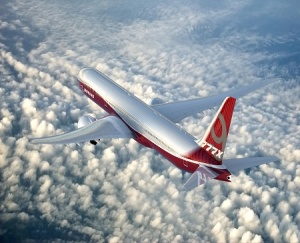Boeing slams WTO ruling as subsidy battle rumbles on

Boeing has rejected a World Trade Organisation claim that it received illegal subsidies for its 777X manufacture programme.
In response to the ruling, Boeing argued the WTO had rejected virtually all of the European Union’s challenges to the Washington state tax incentives.
On Monday the World Trade Organisation ruled a tax break from Washington state to help Boeing develop its new 777X jetliner was a prohibited subsidy.
The decision was viewed as a setback for the US plane maker as it eyes victory in a parallel case against Airbus.
The WTO said the subsidy came in the form of a renewed cut in Washington state’s main business tax for aerospace agreed in 2013, at a time when Boeing was considering where to base assembly of the latest member of its long-haul jet family.
ADVERTISEMENT
In total, the EU claimed that Boeing had received $8.7 billion in subsidies.
However, this claim was rejected by the WTO, which found future incentives totalling no more than $50 million a year to be impermissible.
The WTO found that to date Boeing has received no benefit from the 777X rate incentive, and will not until 2020, because the first airplane will not be delivered until then.
“This decision is a complete victory for the United States, Washington state and Boeing,” argued Michael Luttig, Boeing general counsel.
“The WTO found in September that Airbus has received $22 billion in illegal subsidies from the EU and that without these subsidies neither Airbus itself nor any of its airplanes would even exist today.
“By contrast, in rejecting virtually every claim made by the EU in this case, the WTO found today that Boeing has not received a penny of impermissible subsidies.”
The EU has challenged seven different state tax incentives.
The WTO rejected entirely the EU’s challenge to six of the seven incentives and rejected most of the challenge to the seventh.
The WTO held only and narrowly that a reduction in Washington state’s Business and Occupancy tax rate for future 777X revenues is inconsistent with the WTO agreements.
“The WTO has repeatedly found that Airbus is entirely a creature of government, and they must now bring themselves into compliance with the international laws or risk massive sanctions,” said Luttig.
It is the third swathe of taxpayer support for Boeing or its European rival Airbus faulted by the WTO in a record transatlantic trade spat dating back 12 years.
Both Airbus and Boeing argue the other received tens of billions of dollars of aid from respective governments.
The ruling, which can be appealed by either side, comes as the United States ponders the first sanctions against the European Union in more than a decade over earlier subsidy rulings against Airbus.
The WTO did not give a value for the banned aid in its latest ruling, but the EU estimated it at $5.7 billion out of an $8.7 billion tax package in Washington, where most Boeing factories are based.

